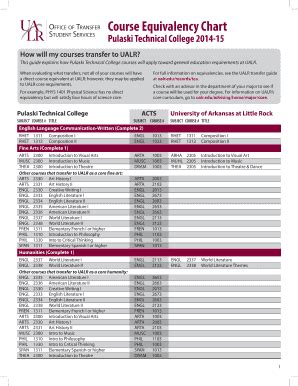Introduction
Transferring to Auburn University can be a seamless and enriching experience with the right preparation. One crucial aspect to consider is the transferability of your earned credits from previous institutions. This article provides an in-depth guide to Auburn’s transfer equivalency policies, ensuring a smooth transition for prospective students.

Auburn’s Transfer Policy
Auburn University has a comprehensive transfer policy designed to evaluate and award equivalent credits for academic work completed at regionally accredited institutions. The university employs a course-by-course equivalency process to determine which courses meet Auburn’s academic requirements.
Equivalency Evaluation Process
Upon receiving a transfer application, Auburn’s Office of Admissions assesses the applicant’s transcripts from previous institutions. The office determines the equivalency of courses based on factors such as course content, duration, and grading system.
Types of Transfer Credit
Auburn awards three types of transfer credit:
- Direct Equivalency: Courses that meet the exact requirements of an Auburn course and can be directly substituted in the degree plan.
- Conditional Equivalency: Courses that are similar but not identical to Auburn courses and may require additional coursework to complete degree requirements.
- Elective Credit: Courses that do not directly fulfill specific degree requirements but may count towards the minimum number of hours required for graduation.
How to Check Course Equivalency
Prospective transfer students can access the Auburn Transfer Equivalency System (ATES) to review course-by-course equivalencies. ATES provides a comprehensive database of courses from various institutions and their corresponding Auburn equivalents.
Transferable Hours and GPA Calculation
Auburn University accepts a maximum of 90 semester hours of transfer credit towards undergraduate degrees. Transferable credits do not affect the calculation of Auburn GPA but may be used to meet course prerequisites and fulfill degree requirements.
Benefits of Auburn Transfer Equivalency
Transfer equivalency plays a significant role in easing the transition to Auburn University. It allows students to:
- Avoid repeating courses that have already been completed
- Shorten the time it takes to earn a degree
- Reduce the overall cost of education
- Focus on completing the remaining requirements necessary for graduation
Pain Points and Motivations
Pain Points:
- Inaccurate equivalency assessments can lead to wasted time and resources.
- Students may struggle to align their previous coursework with Auburn’s requirements.
- Uncertainty about transfer credit can create anxiety and stress.
Motivations:
- Students are eager to maximize the value of their previous education.
- Transferring seamlessly allows students to continue their academic progress without interruptions.
- Understanding transfer equivalency policies empowers students to make informed decisions about their educational journey.
Pros and Cons of Transfer Equivalency
Pros:
- Streamlines the transfer process
- Reduces the number of courses required to graduate
- Saves students time and money
- Facilitates academic flexibility
Cons:
- Not all courses may be equivalent, requiring additional coursework.
- Credits may not transfer to all programs or departments
- Transferring too many credits may limit the student’s exposure to Auburn’s curriculum
FAQs
-
What is Direct Equivalency?
Courses that meet the exact requirements of an Auburn course and can be directly substituted in the degree plan. -
What is Conditional Equivalency?
Courses that are similar but not identical to Auburn courses and may require additional coursework to complete degree requirements. -
How many transferable hours does Auburn accept?
A maximum of 90 semester hours of transfer credit towards undergraduate degrees. -
Do transferable credits affect my Auburn GPA?
No, transferable credits do not affect the calculation of Auburn GPA. -
How do I check course equivalency?
Access the Auburn Transfer Equivalency System (ATES) to review course-by-course equivalencies. -
Can I transfer credits from an international institution?
Yes, Auburn evaluates international transcripts and awards transfer credit as appropriate. -
What if I have questions about my transfer equivalency?
Contact the Office of Admissions at (334) 844-6572 or [email protected] for assistance.
Conclusion
Auburn University’s transfer equivalency policies aim to provide students with a smooth and rewarding transfer experience. By understanding the equivalency process, students can optimize their academic journey, minimize wasted efforts, and maximize their educational investment. Embracing the university’s commitment to academic excellence and student success, Auburn University strives to create a seamless transition for all incoming transfer students.
